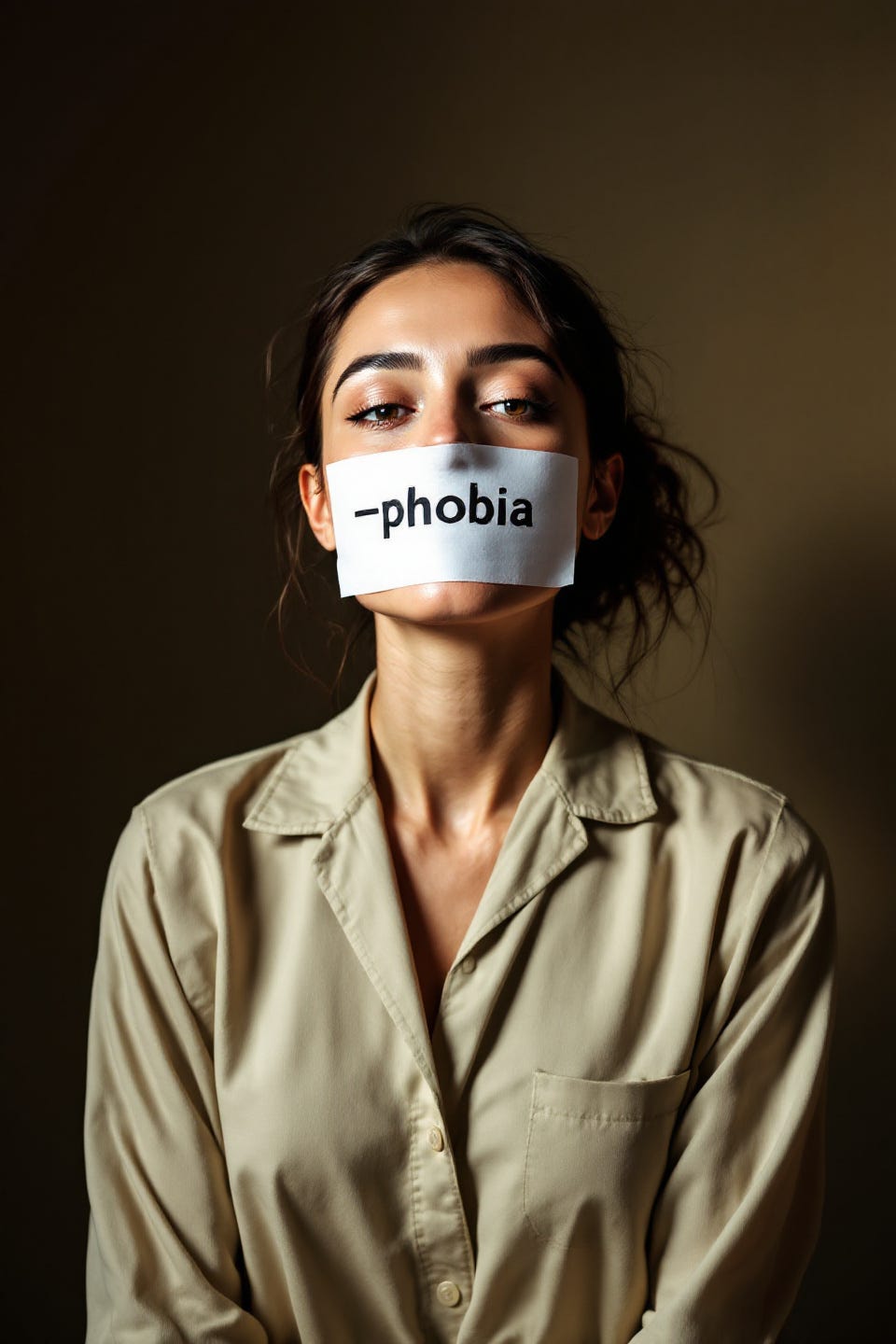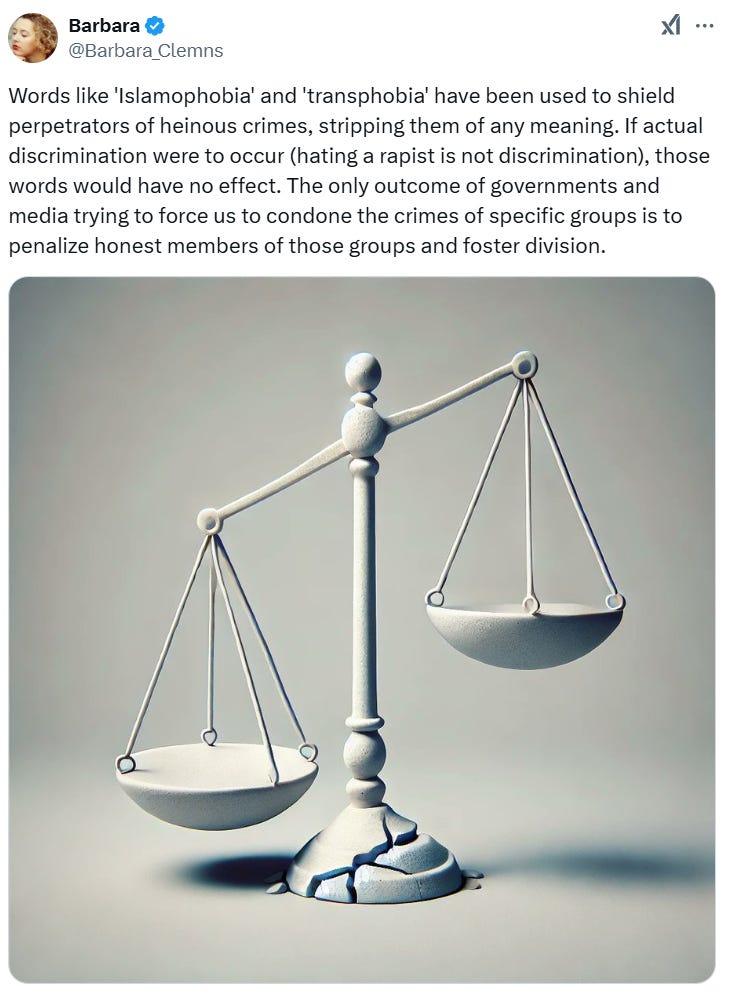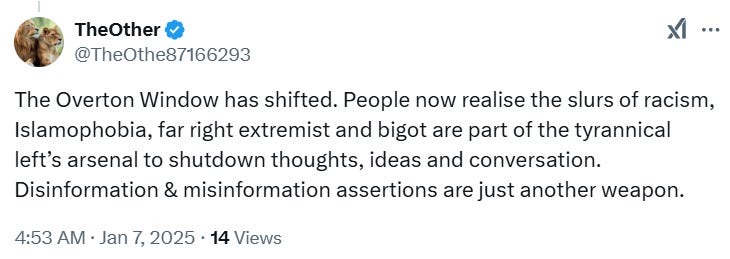The Inflation of Derogatory Labels in Political Discourse
When Meaningful Terms Lose Their Impact
In today's hyper-polarized political landscape, the weaponization of language has become a common tactic. Terms designed to highlight serious social issues like racism, Islamophobia, transphobia, and xenophobia are increasingly used as catch-all slurs against political adversaries, particularly by those on the left. This overuse leads to a dilution of their original meanings, ultimately undermining efforts to address genuine discrimination.
The Dilution of 'Racist'
The term 'racist' has seen a significant expansion in its application. Once used to describe overt acts of racial discrimination or systemic bias, it's now often thrown at anyone who disagrees with certain policies, such as those concerning immigration. According to posts on X, this broad application has led to a sentiment that "If you create manipulated language and stretch the meaning of words like Racist more and more and more, you find that most people come within your expanded definition of Racist / Far Right / Islamophobic etc." This misuse diminishes the power of the word to address true instances of racism, potentially overshadowing the experiences of those who face real racial discrimination.
Islamophobia and Transphobia: Labels as Shields
Similarly, 'Islamophobia' and 'transphobia' have been critiqued for being overused to the point where they can act as shields for actions that might otherwise be criticized. A user on X notes, "Words like 'Islamophobia' and 'transphobia' have been used to shield perpetrators of heinous crimes, stripping them of any meaning." When these terms are applied broadly, they can serve to protect behaviour rather than critique it, thus confusing the discourse around genuine discrimination against Muslims or transgender individuals.
Xenophobia: The Broad Brush of Fear
Xenophobia, traditionally understood as fear or hatred of foreigners or strangers, has also been stretched to fit a wide array of political disagreements. This label can be seen in debates over immigration policy, where opposition to illegal immigration is quickly branded as xenophobic, overshadowing the nuanced discussion on legal frameworks, border control, and national security.
Consequences of Label Inflation
Loss of Terminology Impact: When terms like racist, Islamophobe, transphobe, or xenophobe are overused, they lose their potency. This can lead to public desensitization, where even legitimate instances of these issues are dismissed as just another political attack.
Polarization: Using these labels as weapons in political battles only deepens the divide. As one X user points out, "The Overton Window has shifted. People now realise the slurs of racism, Islamophobia, far right extremist and bigot are part of the tyrannical left’s arsenal to shutdown thoughts, ideas and conversation." This approach does not foster dialogue but rather entrenches positions.
Stifling Legitimate Critique: There's a growing concern that these labels are applied to silence dissent. A post on X criticizes the trend by saying, "The use of terms like -phobia (e.g., "Islamophobia," "Hinduphobia") has sparked significant debate. Critics argue that these terms are sometimes weaponized to shut down dissent, oversimplify complex issues, or stifle legitimate critique of ideas, beliefs, or practices."
The Path Forward
To reclaim the power of these terms:
Precision in Language: We must strive for accuracy when using these labels. They should be reserved for behaviours or systems that genuinely reflect the definitions.
Encourage Dialogue: Instead of labelling, engage in discussions that seek understanding and solutions. This means approaching disagreements with questions rather than accusations.
Education and Awareness: There needs to be a broader understanding of what these terms mean and why they matter. Education can counteract the casual misuse of such powerful words.
Political Accountability: Politicians and activists should be held accountable for their rhetoric. When they misuse these terms, it should be called out, not just by opponents but by supporters who recognize the long-term damage to discourse.
The inflation of derogatory labels in political discourse is not just a linguistic issue but a societal one that erodes our ability to address real injustices. By overusing these terms, we risk losing the very tools needed to fight against discrimination in its true forms. The challenge ahead is to restore these words to their rightful meanings, ensuring they serve as beacons for justice rather than as blunt instruments in political warfare.
This post is a call to action to think more critically about our language and its impact on our political environment and the fight against real discrimination.
Subscribe for more insights into politics, language, and how they intersect in our daily lives.











